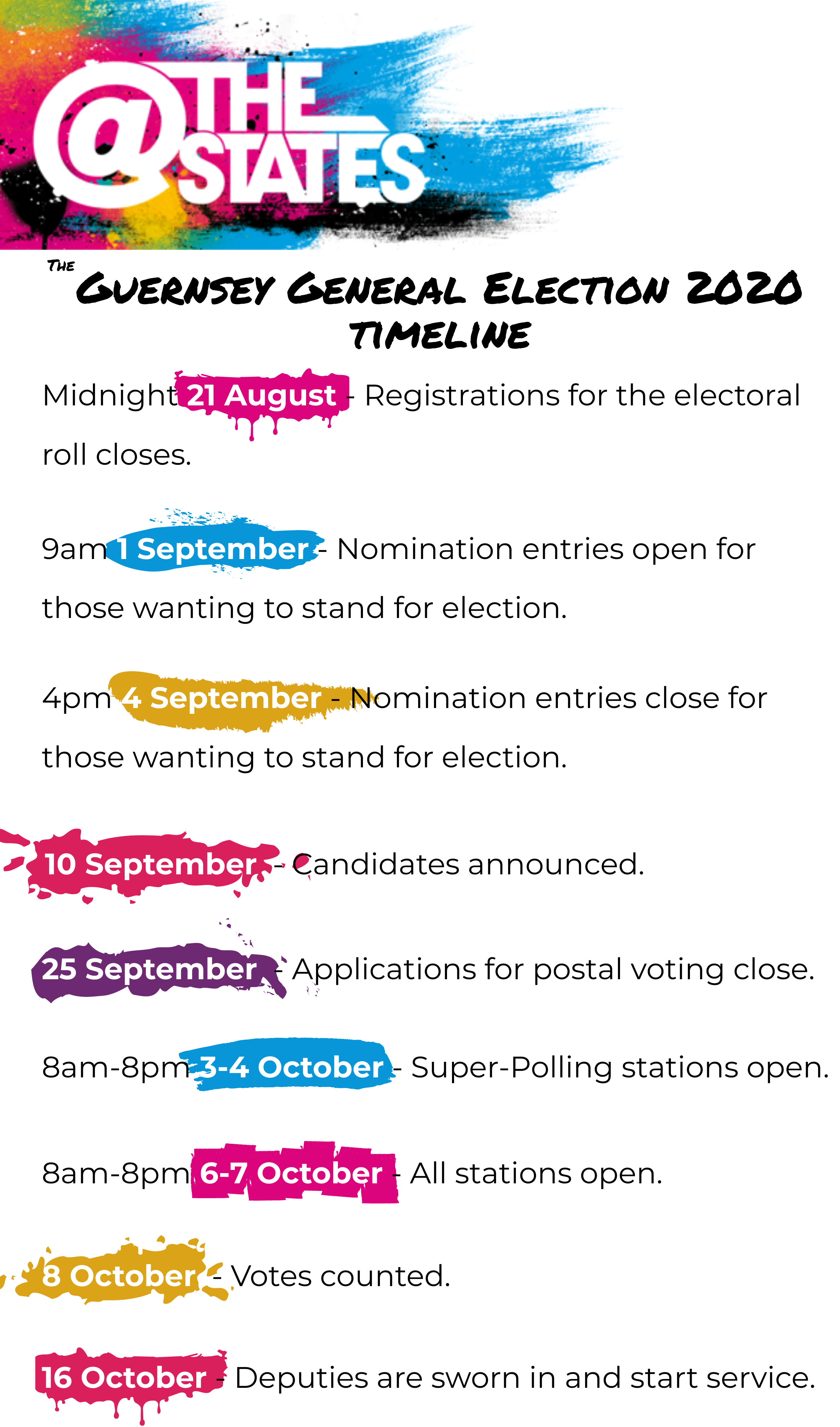Island-Wide Voting
Check out our video below where we challenged a 10 year old to brush up on his political knowledge
and find out about Guernsey’s government and island-wide voting by quizzing a Deputy.
Why island-wide voting?
In the 2018 referendum those on the Electoral Roll were asked to vote on how electing Deputies should work. The options were:
- Option A: 38 Deputies elected island-wide, every four years.
- Option B: 38 Deputies elected across seven districts, every four years.
- Option C: 10 Deputies elected island-wide and 28 elected across seven districts, every four years.
- Option D: 38 Deputies elected across four districts, every four years.
- Option E: One-third of the 38 Deputies elected island-wide, every two years.
Voters chose ‘Option A’, so now 38 Deputies will be elected by anyone on the Electoral Roll in Guernsey every four years. This means there will be a greater choice of candidates. There will also be more choice about how to vote and where to vote.
The spread of COVID-19 caused the States to consider whether the General Election should continue as planned in June 2020. On 15 April 2020, the States of Deliberation agreed to postpone the election until June 2021. As lockdown restrictions were lifted at a much faster rate than anticipated the States’ Assembly & Constitution Committee was asked to look again at possible dates for the next General Election in autumn 2020. On 1 July 2020, the States of Deliberation agreed to appoint Wednesday 7 October 2020 as the date for the General Election.
What is different to the old system?
The new system is very different. The old way meant you could only vote for 5 or 6 people who were in your electoral district. Previously Guernsey was divided into seven electoral districts, each with the same populations. They were: St. Peter Port South, St. Peter Port North, St. Sampson, Vale, Castel, West and SouthEast.
Now Guernsey is one district instead of being divided up into seven and voters vote on an island-wide basis. If you are on the Electoral Roll you can vote for up to 38 people standing in the election. This means there will be a greater choice of candidates. There will also be more choice about how to vote and where to vote.
How does island-wide voting work?
To vote you must have registered to be on the Electoral Roll. This is a brand-new roll which opened in December 2019, so even if you have been registered before that date (for example for a previous election) you must re-register to vote. You can register online or by using the household registration form which gets sent to every home in Guernsey. You will be given one ballot paper and you can vote for up to 38 candidates out of about 100. The ballot paper will be much larger than in previous elections. You will have to fill in a small oval shape to indicate who you want to vote for rather than a traditional ‘X,’ as the ballot papers will be read by electronic counting machines. If you request a postal vote you can fill out the ballot paper at home and post it back or you can hand it in at a polling station.
There will be super-polling stations where everyone can go to and cast their vote and there will be a parish polling station which you can go to cast your vote if you live in the parish the polling station is located.
Due to the complexities of casting 38 votes, the election will take place over the course of four days rather than one.
The next election will take place in June 2025.
Political Parties
A political party is an organised group of people with the same ideas or who have the same political positions. They work together to get elected so that their party’s plans are more likely to be implemented.
Any political party which wishes to support or endorse a candidate in the Guernsey General Election must be registered at the Greffe first.
There is an admission fee for making an application.
Every party must have a leader, a treasurer and a secretary, although a member may hold more than one of these posts at a time. Applications to the Greffe must be signed by two members of the party who are on the Electoral Roll.
Candidates will be set a spending limit of £6,000 during 1 September to 7 October. Half of this amount can be given to a party which the candidate belongs to. However, a political party cannot spend more than £9,000.
For more information go to: gov.gg/politicalparties.

Where to vote?
DATE |
WHERE TO VOTE
|
Saturday 3 October8am to 8pm
|
· St Sampson’s High School· The Princess Royal Performing Arts Centre |
Sunday 4 October8am to 8pm
|
· St Sampson’s High School· The Princess Royal Performing Arts Centre |
Tuesday 6 October8am to 8pm
|
· The voter’s parish polling station· The Princess Royal Performing Arts Centre |
Wednesday 7 October8am to 8pm
|
· The voter’s parish polling station· The Princess Royal Performing Arts Centre |

